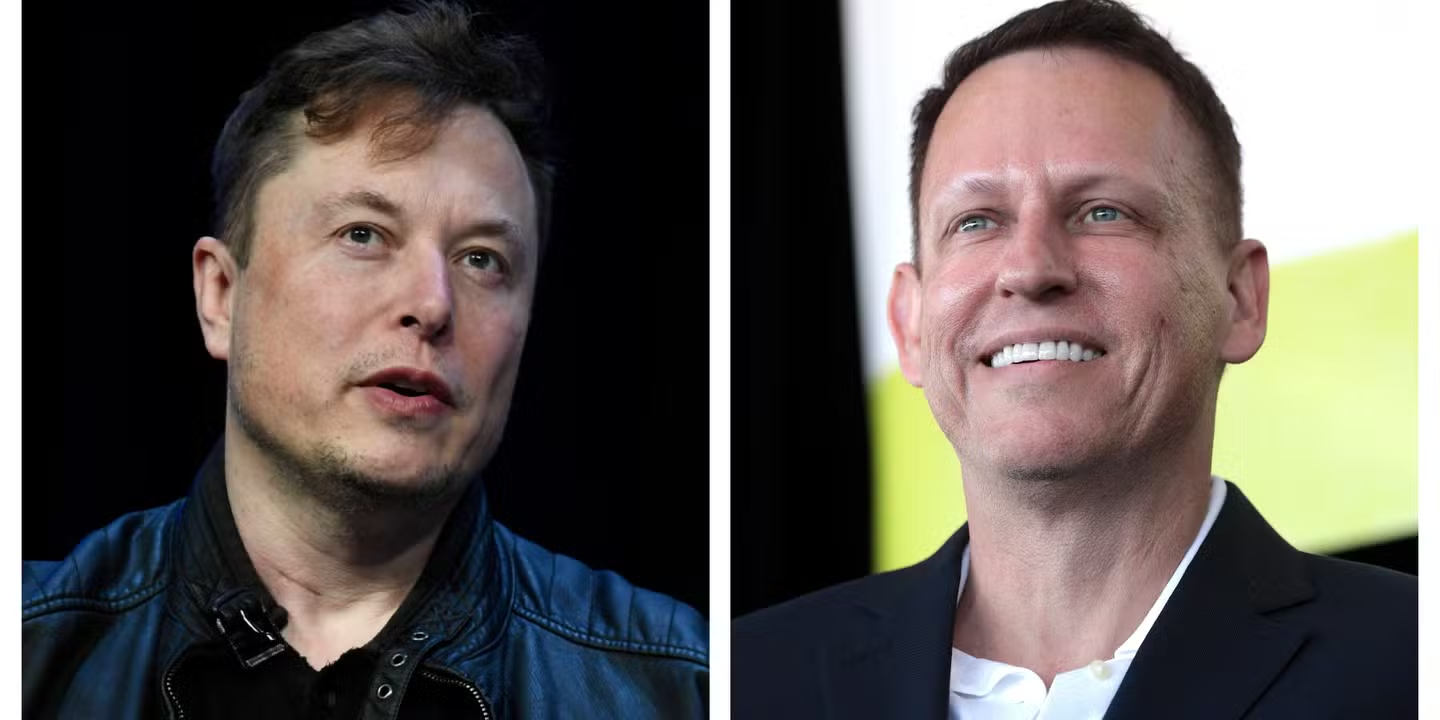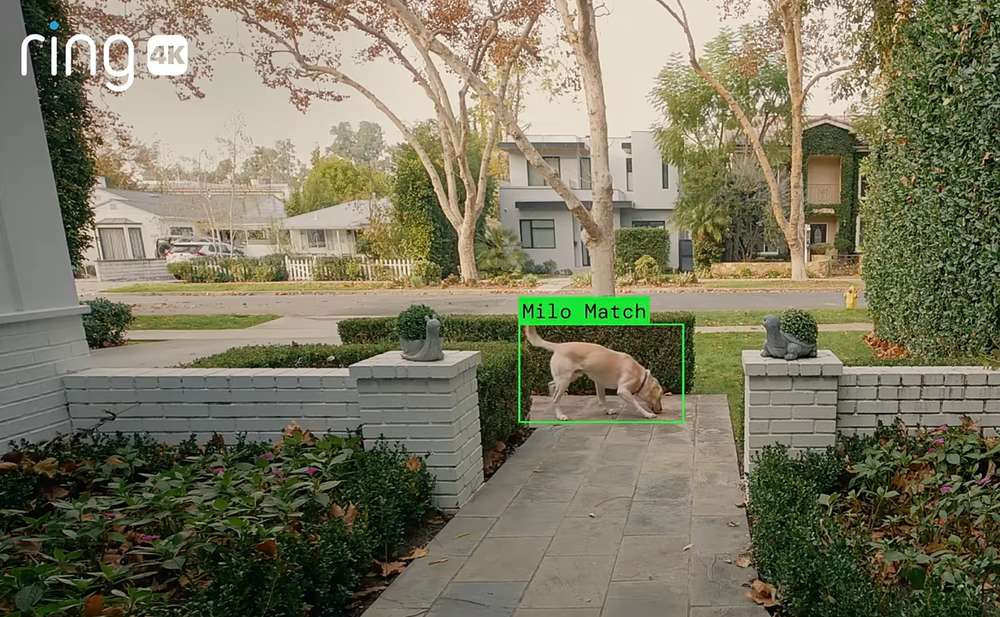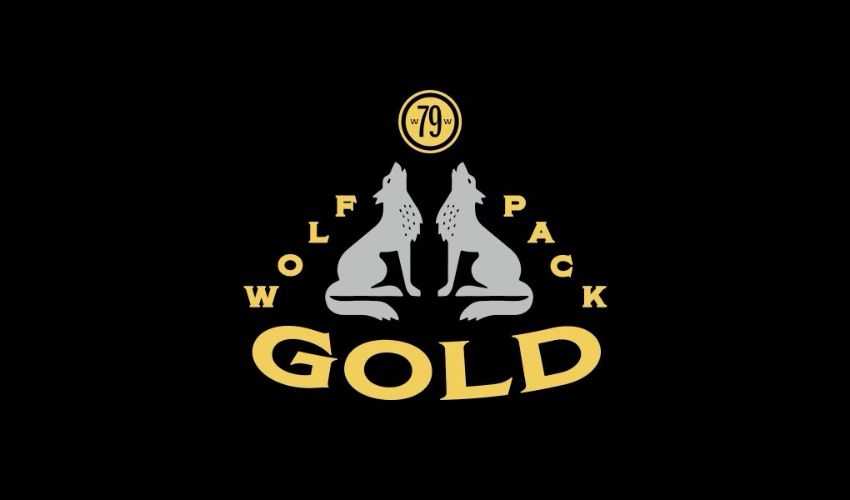Matt Ehret’s Insights by Matthew Ehret
The parallel growth of Elon Musk and Peter Thiel as children of mysterious establishment families enmeshed in the elite corridors of Apartheid South Africa and earlier fascist movements before and during World War 2 is noteworthy, but not evidence that either man is a part of a broader conspiracy.
However, the parallels don’t end with their family roots or connections to the Apartheid South African elite.
As both men ascended to the higher echelons of Silicon Valley culture in the 1990s, their lives continued to cross pollinate and advance the same transhumanist programs between 1998 through to the present day.
While Elon co-founded Zip2 as his first technology startup in 1995 (essentially selling digital phone books to various companies), Thiel’s entry into tech start ups also began around that time with his launching of a software company named Confinity in 1998.
Before that, Thiel had begun to make a name for himself as an innovative Straussian in Stanford University, where he founded the libertarian Stanford Review in 1987, serving as its editor-in-chief until his 1992 graduation.[1]
The Stanford Review received patronage from non-other than former Trotskyite and early Straussian Irving Kristol who led in the formation of the neoconservative movement during the Cold War and that movement’s acquisition of political power in the USA in 2000. The era of the ‘New Crusaders’ that launched forever wars abroad after 9/11 and a vast surveillance dragnet within the USA were all Straussians.[2]
This fact will become extra important later in this chapter.
After working as a derivatives trader at Credit Suisse in 1993 and then a securities lawyer for the CIA-affiliated law firm Sullivan and Cromwell,[3] Thiel co-founded Thiel Capital Management in 1996 followed soon thereafter by his first digital payments company named Confinitity in 1998 where his life would begin to merge with that of Elon.
Although Elon Musk has made much noise proclaiming his having cut ties with his abusive father Errol Musk upon leaving South Africa for Canada at the age of 17, according to his own words, his father provided $20,000 of the original investment that got his startup company Zip2 online in 1997.[4]
This is but one of many data points indicating that a thick veneer of false narrative has been carefully built up around the persona of Musk as a self-made libertarian genius who worked his way to becoming the richest man on earth from the status of a poor student living on crackers.
While Elon has stated that it was hard work, and personal resilience mixed with fortunate scholarships that paid his way through school, it is known that Elon actually co-owned an entire frat house in Pennsylvania where he was studying for his Bachelor of Arts.
While co-owning this frat house, Elon created a scandal by transforming it into a nightclub, and despite having done so illegally, appears to have never suffered any legal issues by campus or municipal authorities.[5]
Despite the fact that Zip2 was little more than a digital yellow pages, Compaq decided that it was a worthwhile investment and poured $341 million to purchase the start up in 1999 which netted Elon $22 million.
With this money, Elon was able to co-found X.com with Greg Koury as a boutique company that would specialize in online payments outside of conventional banking channels.
Within months of founding X.com, the company merged with another digital payments company called ‘Confinity’ that had been founded by Peter Thiel a year earlier. This new company quickly received a rebranded image under the new name of ‘Paypal’.
In 2002, Paypal was purchased by Ebay for $1.5 billion, scoring a $175 million for Elon, and $55 million for Thiel.

At this point, both Elon and Thiel were given patronage and direct support by leading directors of the CIA’s official venture capital firm In-Q-Tel.[6]
With his new-found wealth, Peter Thiel established a new private surveillance agency named Palantir in 2004 which drew its name from the all-seeing indestructible crystal balls used in J.R.R. Tolkien’s Lord of the Rings which granted its users the power to literally see and hear everything in the world.
According to Renee Sigerson:
“Palantir is a computer software provider that has chalked up billions of dollars in management contracts—many of them highly classified—from agencies of the U.S. government and allied governments. Cited by media, stock market analysts, and aroused foreign government officials as a highly secretive, aggressive, and invasive example of what some call “surveillance capitalism,” Palantir has contracted with the Pentagon, anti-terror divisions of the National Security Agency, Immigration and Customs Enforcement (ICE, a contract they lost to a rival at year end), local police departments in the U.S. and Europe, and Department of Health and Human Services (HHS) operations overseeing the COVID-19 crisis. Palantir also has security-related contracts with the French and UK governments.”[7]
In-Q-Tel became the first official financial backer of Thiel’s Palantir in 2004 providing the original $2 million funding to launch the new tech surveillance firm. [8]
The CIA’s interest in Palantir at this period was not so much due to American security as it was due to the failure of an earlier project dubbed ‘Total Information Awareness’.
The Rise and Re-branding of Total Information Awareness
In the wake of September 11, 2001, the newly emergent neoconservative social engineers introduced a ‘solution’ to the problem of international terrorism in the form of the first iteration of a vast surveillance dragnet dubbed ‘Total Information Awareness’ (TIA) featuring a logo with a pyramid and the eye of Horus.
The program proposed to manage a total surveillance state and even began innovating predictive policing algorithms. This new science of control would attempt to monitor and measure every citizen’s actions, electronic communications and even proposed to predict where future crimes would occur using probability theory.
The founders of the project called it the “Manhattan Project for counter-terrorism”.
Although the Orwellian branding resulted in significant public backlash, the program was not shut down but merely rebranded to ‘Terrorism Information Awareness’ in 2004. This new Manhattan Project also continued and pioneered the science of biometric identification, facial recognition, and other technologies useful only under the conditions of dictatorship. Among the rebranding was included the creation of a civilian agency named Palantir.
The architect of TIA was the same Admiral John Poindexter who had overseen the Iran-Contra scandal with General Oliver North in the 1980s, and who (with North) had already promoted an off-the-books intelligence apparatus directed by the CIA which could be sold to the population as a ‘civilian’ contractor as far back as 1986.
The surveillance/database infrastructure then developed during the 1980s to satisfy this need was named ‘MAINCORE’ and the purpose was to keep track of all information of ‘potential disruptive individuals’ to be arrested “in time of panic” or “national crisis”. Later on, MAINCORE spawned such surveillance programs as GENOA, Genysis and PRISM.
Despite being sentenced to five years in prison for his role overseeing Iran Contra, Poindexter’s career did not suffer terribly, as his sentence was commuted to several months, and the neocon spent the next two decades working as a defense contractor, DARPA analyst and architect of TIA.
Thiels’ biographer Max Chafkin explains[9] that just before Palantir was created, John Poindexter and then-CIA director George Tenet were introduced to both Thiel and fellow Palantir creator Alex Karp by none other than leading neoconservative strategist and leading Straussian, Richard Perle. Among Palantir’s military intelligence clients are found the CIA, FBI, NSA, CDC, Marine Corps, Air Force, Special Operations Command, and Westpoint[10]. But that’s not all.
The London Guardian wrote that “Palantir does not just provide the Pentagon with a machine for global surveillance and the data efficient fighting of war. It runs Wall Street too”.[11]
The Straussian Moment
To properly appreciate the nature of the machinery influencing both Peter Thiel and Elon Musk, it will be useful to briefly take the opportunity to explore Thiel’s devotion to Leo Strauss, and the broader Behaviorist-Straussian ideology that has been used to undermine the American founding principles since its earliest days.
We will now do this by evaluating a 2007 essay written by Peter Thiel dubbed ‘The Straussian Moment’ first published in the Standford Review. [12]
The purpose of this Thiel’s essay was to summarize his political theory into a comprehensive manifesto and his belief in a ‘secret teaching’ for the initiated few vs the ‘public teaching’ for the masses promoted. Whether or not this essay contributed to Thiel’s rise to the steering committee of the Bilderberg Group or his initiation into the Crusader Knights of Malta remains to be seen, but for now, we will merely review his own words.
Additionally noteworthy is that Thiel’s essay was written in order to summarize the thoughts he had earlier delivered to a 2004 conference at Stanford University called ‘Politics and the Apocalypse’.
As the title implies, Thiel situates himself as a follower of the political theories of the neo-Platonic philosopher Leo Strauss (1899-1973), who migrated from Germany to France on a Rockefeller Scholarship, and upon receiving sponsorship from Harold Laski (then head of the London Fabian Society and director of the London School of Economics) and became a leading academic in the USA. Upon arriving in New York, Strauss went to work studying classics and social theory at Columbia University and New School, followed by a 30-year gig at the University of Chicago. During his long teaching career, Strauss groomed a generation of radical Trotskyites such as Irving Kristol, Albert Wohlstetter, Donald Rumsfeld, Paul Wolfowitz and Richard Perle becoming the Godfather of a virulent new crusader ideology in American known as ‘Neoconservatism’.
Thierry Meyssan describes this process in ‘Russia declares war on the Straussians’:
“The Straussians began forming a political group half a century ago, in 1972. They were all members of Democratic Senator Henry “Scoop” Jackson’s staff, including Elliott Abrams, Richard Perle and Paul Wolfowitz. They worked closely with a group of Trotskyite journalists, also Jewish, who had met at the City College of New York and edited the magazine Commentary. Both groups were closely linked to the CIA, but also, thanks to Perle’s father-in-law Albert Wohlstetter (the US military strategist), to the Rand Corporation (the think tank of the military-industrial complex). Many of these young people intermarried until they formed a compact group of about 100 people.”
Strauss famously rejected the notion that purpose, morality or justice had any existence beyond social convention, and developed an elitist political theory that was exemplified by his statement:
“Because mankind is intrinsically wicked, he has to be governed… Such governance can only be established, however, when men are united and they can only be united against other people.”[13]
Rule Through Fear
On top of his belief in the intrinsic wickedness of humankind, Strauss posited the need to unite humanity under the fear of constant terrors from beyond. In the ‘Straussism: The Philosophy Directing The Age Of Tyranny’, Jan Allen writes:
“The only way a political order can be stable is if it is united by an external threat. Wealth, freedom, and prosperity make people soft, pampered, and depraved. War is an antidote to moral decadence and depravity. Thus war is held to be redemptive and perpetual war is necessary. Straussians believe in an aggressive, belligerent foreign policy for a world order dominated by U.S. military power. Neoconservatives see foreign policy as a means to fulfill a “national destiny”, as Irving Kristol defined it in 1983, that goes far beyond the narrow confines of a “myopic national security.”
With this dystopic belief in rule through terror, it should be no surprise that Leo Strauss carried out a long correspondence with such Nazi luminaries as German Crown Jurist Carl Schmidt (the architect of the Unitary Executive Theory), Nazi SS philosopher Martin Heidegger and French fascist Alexander Kojeve.
He also pushed the Kabalistic notion of secret knowledge accessible only to a superior breed of elites, which required a denial of a certain quality of philosophical thinking to the mass base of wicked slaves that must be ruled. Thiel identified this dark philosophy approvingly in his 2007 essay:
“There is little in Strauss that is more clear than the need for less transparency. Unchecked philosophizing poses great risks to philosophers (as well as the cities they inhabit), as in even the most liberal or open-minded regimes there exist certain deeply problematic truths. Strauss is convinced that he is not the first to have discovered or rediscovered these truths. The great writers and philosophers of the past also had known of these matters but, in order to protect themselves from persecution, these thinkers used an “esoteric” mode of writing in which their “literature is addressed, not to all readers, but to trustworthy and intelligent readers only.”[14]
Within his 2007 essay, Thiel shows his loyalty not only to Strauss, but also to the worldview of Nazi Crown Jurist Carl Schmidt (whose Unitary Executive Theory justified Hitler’s imperial enabling acts). Carl Schmidt’s theories of executive command and control of society under ‘crisis management’ also promoted the notion that ‘The Noble Lie’ outlined by Plato in The Republic was a necessary tool of control of the masses who must be kept in a dream state adhering to sacred myths crafted by a high priesthood in order for any society to maintain order.
Evil = Cause of ‘the Good’
Thiel discusses Leo Strauss’ observations of the origin myth of Rome and the USA:
“On the problematic question of origins, for instance, Strauss notes the surprising convergence, at least on the level of factual detail, in the Roman myth of the founding of the greatest city of the ancient world and in what the book of Genesis says about the founding of the first city in the history of the world.” Does Strauss then believe that “there cannot be a great and glorious society without the equivalent of the murder of Remus by his brother Romulus?”
On this question of necessary lies and fanciful tales justifying a society’s belief in their own greatness, Thiel discusses Strauss’ concept of the USA as a great and glorious nation founded on the necessary reality of injustices, slavery, mass slaughter, theft and lies.
Leo Strauss
After summarizing the noble principles of morality outlined in the Declaration of Independence which explicitly rejected hereditary rights to rule, Thiel writes:
“We find that even in the case of the American Founding, this patriotic account is not necessarily the whole truth, and the reader is informed that perhaps “America owes her greatness not only to her habitual adherence to the principles of freedom and justice, but also to her occasional deviation from them. Moreover, we are told that there exists a “mischievous interpretation of the Louisiana Purchase and of the fate of the Red Indians! Indeed, the philosopher’s decision to write esoterically reminds us that even in America, the most liberal regime in history, there remain politically incorrect taboos.”
Thus again, evil and lies are needed to accomplish the thing which Strauss and Thiel label “the Good”.
It is here that Thiel celebrates the need for the cut-throat world of espionage and power projection of a world empire enforced by the military and political influence of the USA when he writes:
“Instead of the United Nations, filled with interminable and inconclusive parliamentary debates that resemble Shakespearean tales told by idiots, we should consider Echelon, the secret coordination of the world’s intelligence services, as the decisive path to a truly global pax Americana.”
The Echelon Project referred to by Thiel is the largest global surveillance program managed by the Five Eyes and created in the 1960s as a military intelligence surveillance program. Echelon would have been the principal agency interfacing with and directing the operations of Palantir at the time of Thiel’s writing.
John Locke: Gnostic Precursor to Modern Technocracy
Continuing the narrative of the ‘esoteric’ and ‘exoteric’ teachings of elites throughout history, Thiel advances the narrative that Jesus himself had a secret teaching for his favorite initiates that was far removed from the character portrayed in the New Testament. Citing British imperial grand strategist John Locke, who also denied a priori the existence of any inborn soul within humanity[15], Thiel writes:
“Locke informs us that Jesus’s words were not to be taken plainly. If Jesus had told people exactly what he was up to, the Jewish and Roman authorities “would have taken away his life; at least they would have . . . hindered the work he was about,” for his teachings would have threatened the civic order and functioning of government. And so Christ concealed his meaning so that he might live and teach.! Locke’s conception of Christ is a world removed from that of the medieval passion plays or The Passion of Mel Gibson; still, the character Locke attributes to Christ comports rather well with the character that one reasonably might attribute to Locke himself and the passionless world he set out to create.”
This revealing paragraph showcases the fact that Thiel, like John Locke, was a believer of the gnostic heresy of ‘Christ’s secret teachings’ popularized after WW2 in the form of the Nag Hamadi scriptures.
These so-called ‘scriptures’ were second century occult writings that attempted to transform the early Christian religion into amoral mystery cults under such cult leaders as Simon the Sorcerer, Valentinus, Marcian, and Balsides. These Gnostics promoted perverse brands of Christianity devoted to the same rites of initiation and Manichean (i.e.: dualistic) practices that were dominant throughout the cults of Isis, Mithras, and Cybele/Demeter.[16]
Just as John Locke explicitly denied the existence of a soul in humanity, promoting instead the notion of blank slates that must be programmed by elites, these 21st century Lockeans simply added a layer of cybernetics linguistics to the same positivist concept of Locke.
It is surprising that Thiel acknowledges how the great enlightenment philosophers John Locke and Thomas Hobbes demanded that all philosophical debate over Truth be banished in favor of theories of power, adaptability, and property issues (due to the uncontrollable and disruptive nature of such arguments to the social order):
“In a capitalist world, violent debates about truth—whether they concern questions of religion and virtue or questions about the nature of humanity— interfere with the productive conduct of commerce. It is therefore best for such questions to be eliminated or obscured.”
Thiel then discusses Locke’s use of the abbreviation of ‘X’ which plays a particularly interesting role in the formation of Huxley’s X Club in the late 19th century and the rebranded X Club that emerged within Silicon Valley. Thiel writes:
“In the place of human nature, Locke leaves us with an unknowable “X.” This awareness of ignorance provides the low but solid ground on which the American Founding takes place. The human “X” may have certain wants and preferences, but nobody is in an authoritative position from which to challenge those desires. And so, in a somewhat paradoxical manner, the unknowability of “X” leads to classic liberalism and the very strong assertion of the different rights that belong to that unknowable “X”: the freedom of religion, for we cannot ever know what people are truly thinking in the temple of their minds; the freedom of speech, for we cannot irrefutably criticize the way people express themselves; the right to property and commerce, for we cannot second-guess what people will do with the things they possess. “Capitalism,” concludes Nobel laureate Milton Friedman, “is simply what humans do when they are left alone.”
The ‘X’ Factor is quite literally described as the essential secret of the oligarchy’s control over humanity. It is the symbol for the control over human nature and most specifically the most profound concepts of human nature that are tied to the notion of the immortal soul, morality, conscience and God.
To the degree that these concepts can be kept relegated to the domain of fantasy, irrationalism or better yet not even pondered by a mortal mind of any plebian… the better a governing class of elites may lord successfully over the dim-witted herd of human cattle.
Which brings us back to…







